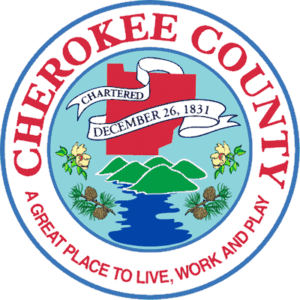
The Cherokee County Board of Commissioners is the local governing body of one of the fastest growing counties in Georgia and the Southeast. The county is home to one of the lowest tax rates and the highest SAT scores in the state.
One of the fastest growth segments of Cherokee County’s population was an influx of the first wave of the millennial generation who were purchasing homes and building families. Increasingly, these millennials were turning to online and social media as a primary resource for news about local issues and events. The county felt that their traditional marketing efforts were not reaching and informing this audience.
In addition, county leaders were becoming increasing concerned about the county’s digital and social media presence online and the impact that it may have been having in the economic development competition with other local communities across the country in attracting new businesses and large employers to the county.
Arc 3 Communications worked with Cherokee County Board of Commissioners to develop a plan for creating content for their website and social media networks to educate and inform stakeholders, constituents, businesses and c-level executives.
Through the development of a content marketing plan which included an identification of key messages, audiences and content buckets, the county was able to launch a new website and social media program that reached key audiences. Training was provided to county department heads and staff on key social media channels and tactics; content tips and the content marketing ideation process.
Cherokee County’s new content marketing and social media program has resulted in a 53% increase in fans on Facebook; 241% increase in followers on Twitter; and 40% follower growth on LinkedIn. Cherokee County has also established a strong presence on Instagram in anticipation of the visual growth in social media. Cherokee County has seen its Klout Score, a measure of social media influence, increase by 300%.
However, a successful content marketing and social media campaign is not just measured by the number of likes and followers. More importantly Cherokee County has seen an increase in citizen engagement and civic reporting, greater citizen awareness about their local government, and more economic development leads. Cherokee County was just recently awarded the location to the county of Inalfa Roof Systems, an economic development win that was recognized by Governor Nathan Deal and the Georgia Economic Developers Association as the “Deal of the Year” for 2013.